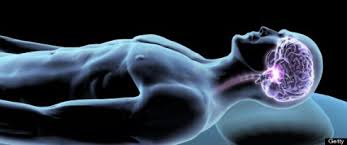Do you want to clean the cobwebs in your brain? You would probably consider getting some shuteye to do this. Studies show that one of the reasons people sleep is to detoxify the brain. A new study that was published recently online in the journal Science revealed that when you sleep the brain does some spring cleaning. Let us find out how the brain detoxes while the person is sleeping.
What happens to the brain during sleep?
A team of researchers used high-tech imaging equipment to look inside the brains of mice. The researchers found out that the mice’s brains were acting differently when they are asleep. They compared the activities in the brain of the mice when they are asleep and awake. The researchers from University of Rochester Medical Center discovered that the brain is actually throwing away excess proteins. The rate of this protein elimination is measured to be faster during sleep compared to the rates while the rats are awake. You may be thinking that this may be true for mice but not necessarily true for humans. Researchers tested rats’ brains because it is uncannily similar to human brains and this is a fact.

How sleep detox your brain
How does the brain’s drainage system work?
The researchers from the Center of Translational Neuromedicine at URMC discovered that the brain has a drainage system that removes excess water and fluid. The researchers called this sort of a plumbing system as the glymphatic system. The researchers saw that this system is 10 times more active during sleep. The plumbing system is specifically eliminating the fluid called amyloid-beta which may cause plaques that may lead to dementia and Alzheimer’s disease.
What is the glymphatic system?
The glymphatic system is a new discovery made by Maiken Nedergaard and her team at URMC. They discovered this plumbing system in the brain after they used high-powered photon microscopes. They found this system quite accidentally while the team was scrubbing around the brain’s glial cells. The process of elimination being conducted by the glymphatic system is quite amazing, the researchers said. Nedergaard and her team saw how the fluids flow through the gaps in the neurons and flush it towards the circulatory system and to ducts where it can eventually leave the body for good.
What is so good about sleep?
The researchers found out that sleep acts like a faucet being turned on. The sleep state allows the clearance of the fluid to take place. This may be the real explanation behind the restorative effects of sleep. It has been known in some circles that sleep can help people overcome anxiety symptoms and even prevent the onset of depression. This new discovery opens up new ways and methods in the prevention and treatment of mental disorders like dementia and Alzheimer’s disease. It has been known that excess amounts of beta-amyloid plaques can increase the risk of mental disorders. People that hold on to beta-amyloid by depriving themselves of enough sleep are more likely to develop a mental illness later in life.
What are the other effects of sleep deprivation?
Lack of sleep does not only lead to mental disorders. Sleep also helps boost a sagging immune system. In a study done in Amsterdam in the Netherlands the white blood cells of men who are able to sleep eight hours are of higher count compared to men that only slept less than eight hours each night. Sleep loss also increases the risk of stroke four times. The risk does not take into consideration health conditions. The lack of sleep can also increase the likelihood of stroke even at a younger age.
What to do to have better sleep?
Experts believe that making the bed welcoming can help people sleep better. Taking a warm bath and having a calm environment before sleep can help one get a good night’s rest. It is best to skip a heavy meal before sleeping. The digestive system slows down while at rest so it may cause disruptions and cause low quality sleep.
Sleep is essential. Almost all animals rest in one form or another. The new study is helpful in lowering risks of Alzheimer’s disease and dementia. This is also good news to people who are constantly suffering from anxiety symptoms. Keeping a good quality sleep does not only give you better cognitive functions but it can also lead to a healthier brain.


 (5 votes, average: 4.20 out of 5)
(5 votes, average: 4.20 out of 5)









